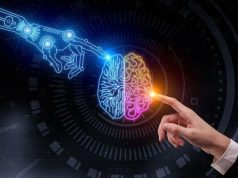The stigma around organ donation is real, especially among Indians. Organ donation is no less than a ‘breaking-news’ standard in our society. It’s a jaw-dropping scenario if a party has either donated or received one – too many assumptions, emotions and superstitions have been associated to hinder the progress of this concept. Unless a family member has benefited or witnessed its merits, it not easy to persuade anyone on the topic.
The demand for organ transplantation has rapidly increased all over the world during the past decade due to the increased incidence of vital organ failure, the rising success and improvement in transplant outcome. However, the unavailability of adequate organs for transplantation; for whatsoever reason prevalent, to meet the existing demand has resulted in major organ shortage crises – resulting in a major increase in the number of patients on transplant waiting lists as well as in the number of patients dying while on the waiting list.
This organ shortage crisis has deprived thousands of patients of a new and better quality of life and has further caused a substantial increase in the cost of alternative medical care such as dialysis and many such more. India has an organ donation rate of about 0.52 per million populations. In comparison, the rate in Spain is the highest in the world – 49.6 per million populations. Unlike India where a person has to register to be an organ donor — and the family has to consent to it after death — Spain has an opt-out system where a person is presumed to be a donor unless otherwise specified.
India’s organ donation rate is one of the lowest in the world despite the demand thereby leading to illegal rackets flourishing. If the gap between demand and supply reduces, they are bound to diminish. There are several procedures and pathways which have been shown to provide practical and effective solutions to the situation – the first and foremost being implementation of appropriate educational programs for the public.
National Donor Day observed every year on 14th February is an observance dedicated to spreading awareness and educating about organ, eye and tissue donation. It’s a day to recognize those who have given and received the gift of life through donation, are currently waiting and those who died waiting. By educating, a small yet vital step has been taken to save, heal and honor the legacy of humanity, generosity and compassion.
The southern and western states like Tamil Nadu and Maharashtra are doing pretty well as the awareness started early on there. The reason behind disparity among other states is possibly linked to the literacy rate which comparatively is less. Public should not shun away from talking about death – it’s bound to a happen, a reality to which no human objects yet no one wishes to discuss on the same. Once we move on from this, only then can we talk about organ donation – it should become a vital topic to talk among family and friends so that mindsets are changed or at least an impression is made to think about it.
Many Muslims believe that organ donation is prohibited. This is because the human body is considered sacred and Prophet Muhammad (pbuh) said that the human body remains sacred even after death and should not be harmed. He said, ‘breaking the bones of the deceased is like breaking his bones when he is alive.’
One of the core objectives of Islam is dignity to human beings. Allah swt states in the Holy Quran, “We have honored the progeny of Adam, provided them with transport on land and sea, given them for sustenance things good and pure, and conferred on them special favors above a great part of Our Creation.” (17:70). Thus, making the mutilation of corpses as a reprehensible act and only justified for the study of medicine. However, the only other instance where organ harvesting is permitted is if the deceased had given consent in his lifetime. In Saudi Arabia, the consent of relatives is also necessary along with the prior consent of the deceased. If the deceased had refused to donate organs, then organ extraction from such an individual is prohibited.
However, this allowance does not open up all doors to donation; Islam maintains a balance in all spheres and in this as well. In a nutshell, organ donation is allowed from a living person to another provided it does not harm the donor and after death if it guarantees to save life. In the view that is adopted by scholars namely, Maulana Razi-ul-Islam Nadvi, Secretary, Shariah Council, Jamaat e Islami Hind. In this view, organ donation after death cannot be done under any circumstances whatsoever. That is because of the belief that the body and all its parts are actually under the Sovereignty of the Creator, and not belonging to human being alone and therefore an individual do not possess the right to give away their organs. The following sentiment is found to be echoed in other religious traditions as well, in particular in some branches of Christianity and Judaism.
Hence, in this view the only instance when organ donation can happen is when the individual is definitely alive and in particularly of those organs, that are regenerative namely blood/blood cells, skin tissue or an organ that is more than one and normal bodily functions will not be affected negatively by the removal of one of the pair which would be kidneys or an organ whose small portion can be extracted from the donor and made into a culture in the body of the recipient i.e. liver.
Families play a crucial role in the entire process. It is very important to discuss with the members and express our view for or against donation. Finally, it’s a choice not an obligation. Whatever the decision, it is important the family is aware of it. With a reminder with science achieving miraculous feats, some there is a strong need for a framework whose ethics are rooted in spiritual faith which emphasizes fearing God and being mindful of accountability for one’s actions in the life-to-come.






